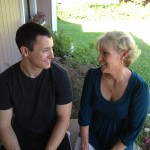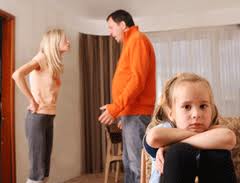As I look back at the 20 years I spent in an abusive marriage, one of the things that has bubbled up from those years is a four-word phrase that I consistently heard from some of my believing friends and church leaders and even a pastor or two. I didn’t recognize the toxicity of those four words before, but now I have come to realize how cold, demeaning and shallow those words are.
As I tried to maneuver through my abusive “Christian” marriage, there were rare occasions when I dared to open up about the horror of my home life to people I thought I could trust, people whom I believed would take the time to hear me, acknowledge the wrong and encourage me to seek safety and peace for myself and my children. Although I desperately hoped to receive some validation and emotional support, more often than not, the “encouragement” I received typically began with four dismissive words: “You just need to…” followed by one of these pat phrases:
…trust that God wants to heal your marriage.
…pray for your husband.
…be more loving.
…be more sexual.
…be more submissive.
…forgive him – often punctuated with the phrase “remember – seventy-times-seven.”
Then they might cast a sideways glance at me and saddle me with one more burdensome missive: “Remember: God hates divorce.” * And they would pat me on the shoulder and walk away, leaving me standing there feeling very much alone and wholly misunderstood.
What those people were really saying was that my husband’s behaviors didn’t matter. My suffering didn’t matter. My kids didn’t matter. I was supposed to trust that I was in God’s will, that God would surely make everything right eventually, no matter how ungodly and toxic our home was if I “just” did all the right things.
The word “just” implies that the solution is simple, something patently obvious and fail-safe. If only…
I now believe that such tepid – but seemingly religious – reactions reflect the reality that it’s easier to put the pressure on the teachable, malleable marriage partner than to identify the potentially toxic, hostile one. Of course, by acknowledging that there is abuse – and an abuser – any conversation about the situation may be viewed as gossip rather than compassion. And, of course, coming alongside the one being abused might necessitate some measure of personal involvement in what is almost certainly a messy situation. Who needs that?
No doubt, my husband understood perfectly well that the pressure was on me to “fix it,” and he liked it that way. “You will submit to me,” served as a trump card when I dared to question his decisions or behaviors. In this, he could rationalize anything he chose to do, because he had been ordained “head of the household.” In fact, just a few weeks into our marriage, the man approached me in the family room and matter-of-factly stated, “Just so you know, I can treat you anyway I want, and as long as you don’t catch me in the act of adultery, there’s nothing you can do about it.” And he walked away.
Continue reading The Four-Word Phrase I No Longer Allow In My Life


 “Hope deferred makes the heart sick…” Proverbs 13:12
“Hope deferred makes the heart sick…” Proverbs 13:12